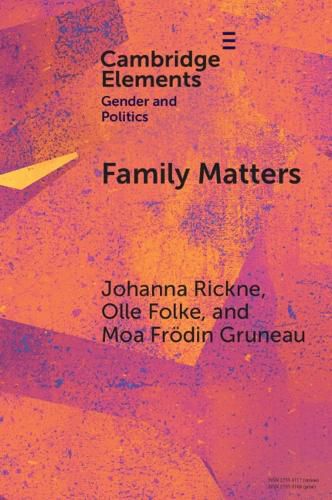Readings Newsletter
Become a Readings Member to make your shopping experience even easier.
Sign in or sign up for free!
You’re not far away from qualifying for FREE standard shipping within Australia
You’ve qualified for FREE standard shipping within Australia
The cart is loading…






This Element studies how career support from romantic partners affects career patterns and costs in politics. It argues that a lower level of career support from romantic partners leads to a lower likelihood for political promotion among women politicians (the partner support hypothesis), as well as greater stress on women politicians' relationships when they advance (the career stress hypothesis). Both predictions find support in Swedish data for more than 80,000 political careers over a fifty-year period. Women politicians are in relationships that prioritize their male partner's career and where that partner does less unpaid work in the household. This is important in explaining women's career disadvantage. It also explains why promotions double the divorce rate for women but leave men's relationships intact. The analysis sheds light on the role played by romantic partners in gender inequality in politics. This title is also available as Open Access on Cambridge Core.
$9.00 standard shipping within Australia
FREE standard shipping within Australia for orders over $100.00
Express & International shipping calculated at checkout
This Element studies how career support from romantic partners affects career patterns and costs in politics. It argues that a lower level of career support from romantic partners leads to a lower likelihood for political promotion among women politicians (the partner support hypothesis), as well as greater stress on women politicians' relationships when they advance (the career stress hypothesis). Both predictions find support in Swedish data for more than 80,000 political careers over a fifty-year period. Women politicians are in relationships that prioritize their male partner's career and where that partner does less unpaid work in the household. This is important in explaining women's career disadvantage. It also explains why promotions double the divorce rate for women but leave men's relationships intact. The analysis sheds light on the role played by romantic partners in gender inequality in politics. This title is also available as Open Access on Cambridge Core.